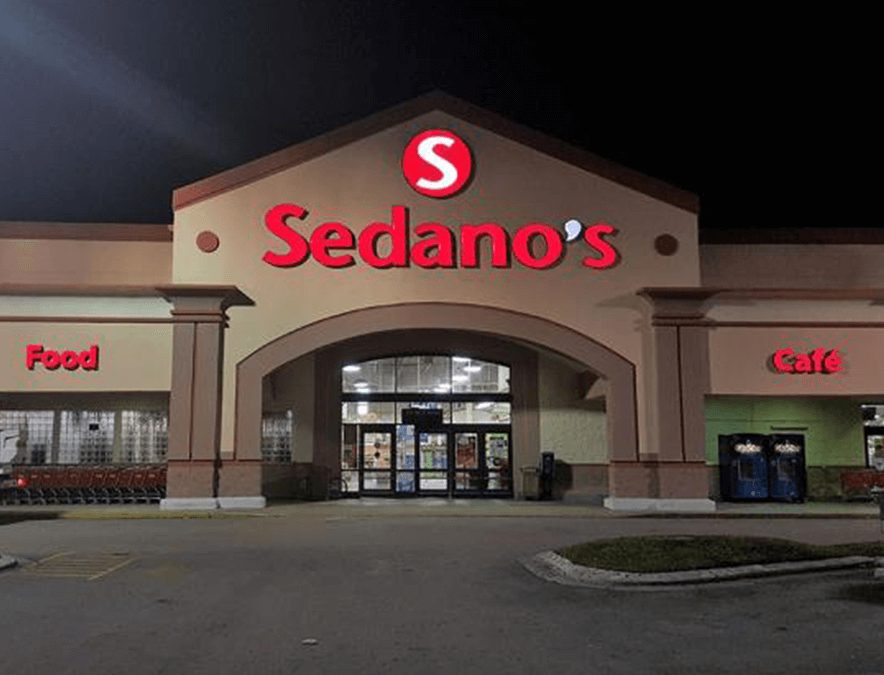Sedano’s Supermarkets, based in Hialeah, Fla., and e-grocery automation startup Takeoff Technologies, Waltham, Mass., have partnered on what they call the “first robotic supermarket.” Takeoff will launch an automated fulfillment center that will serve 14 Sedano’s stores in the Miami area and offer grocery pickup services to the Hispanic supermarket chain’s customers.
Customers will place their grocery orders via a mobile app, and the orders will be received and processed by Takeoff’s automated fulfillment facility with the support of Sedano’s staff. Takeoff said the Artificial Intelligence (AI)-enabled robots can assemble grocery orders of up to 60 items in several minutes, a fraction of the speed and cost of current manual-picking options.
The Martha Stewart brand has entered into partnership with BloomsyBox.com, a farm-to-table floral subscription company based in Miami. The floral collection launched Dec. 1, and features a monthly delivery of fresh-cut roses curated by Martha Stewart from sustainable flower farms around the globe.
The partner-ship will offer a variety of monthly subscription options, including frequency of deliveries, bouquet sizes and gifting preferences. Each bouquet will arrive directly from a farm in accordance with Martha’s selection of seasonal favorites, along with care tips and inspiration.
The Association of Specialty Cut Flower Growers (ASCFG) announced its selections for the “2019 Cut Flowers of the Year.” Chosen by the ASCFG’s 1,600 members for their “ease of culture, productivity and marketability,” the selected varieties are expected to generate increased interested and sales throughout the upcoming year.
The winning selections include Hydrangea paniculata‘Quick Fire,’ Woody Cut of the Year (shown above); Daucus carota ‘Dara,’ Fresh Cut Flower of the Year; Anemone coronaria ‘Galilee White,’ Bulb Cut Flower of the Year; and Eucalyptus gunnii ‘Silver Drop,’ Cut Foliage of the Year.
The California Cut Flower Commission (CCFC) named Cathy Fisher, Santa Barbara County Agricultural Commissioner, as the “2018 Flower Farm Champion” at its annual meeting in November in Santa Barbara. Fisher is the third recipient of the prestigious award and was recognized for “not only her balanced and straightforward approach to regulating farms and collaborating with flower farmers but also her amazing efforts during last December’s Thomas Fire in Santa Barbara and Ventura counties.”
Fisher began her industry career in 1988 with Contra Costa County as an agricultural biologist trainee. Ten years later in 1998, she was promoted to deputy agricultural commissioner and then was appointed chief deputy by the Contra Costa County Board of Supervisors in 2007. Other recipients of the award include Crystal Hedgpeth, floral sales manager for Safeway’s Northern California Division, in 2017, and Lois Capps, former U.S. Representative for California’s 24th congressional district, in 2016.
While midterm elections have evidenced a shift in the balance of power in the U.S. House of Representatives, the same evidence shows that existing relation-ships between lawmakers and the floral industry will remain in place. Shawn McBurney, Society of American Florists (SAF)’s senior director of government relations, reported, “election night 2018 revealed that not only were SAFPAC (SAF’s political action committee) contributions helpful in supporting friends of the floriculture industry in Congress but also the vast majority of those relationships will be there into the next Congress.”
McBurney said there are many opportunities to look forward to in 2019. Although the major frustrations over labor and immigration remain, there have been some more floriculture-specific issues where SAF has succeeded in convincing lawmakers to support the industry. In addition, the expected passage of a new Farm Bill could also include helpful amendments to the Plant Variety Protection Act.
A shortage of essential fertilizers has created a looming crisis in Kenya’s flower farms, putting thousands of industry jobs at risk. Kenya Flower Council (KFC) CEO Clement Tulezi attributed the shortage to the 100 percent testing requirement for all imported fertilizer through the Kenya Bureau of Standards, calling the process “extremely slow” and “highly inconveniencing” to the industry. Kenya is one of the largest floriculture exporters to European countries and the world’s third-largest exporter of cut flowers and foliage.
Tulezi reported the problem has worsened in the last five months and has called on the government to revert to the preshipment inspection to help resolve the current crisis. Of the two companies allowed to import fertilizer, a consignment of 880 and 750 tons is waiting at different warehouses owing to the testing requirement. If nothing is done to change or expedite the current testing requirements, Tulezi pointed out that more than 150,000 employees are in danger of losing their jobs.






